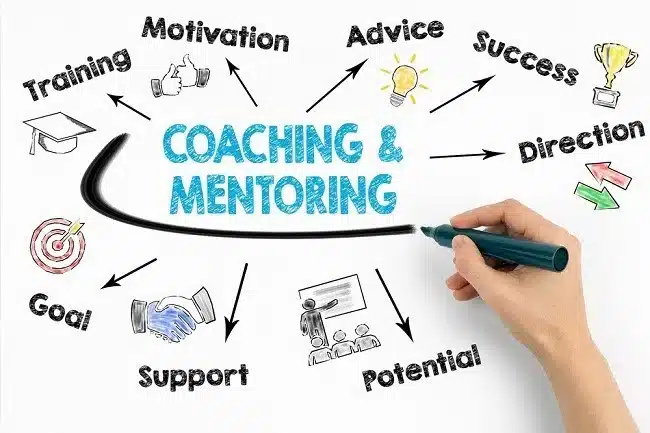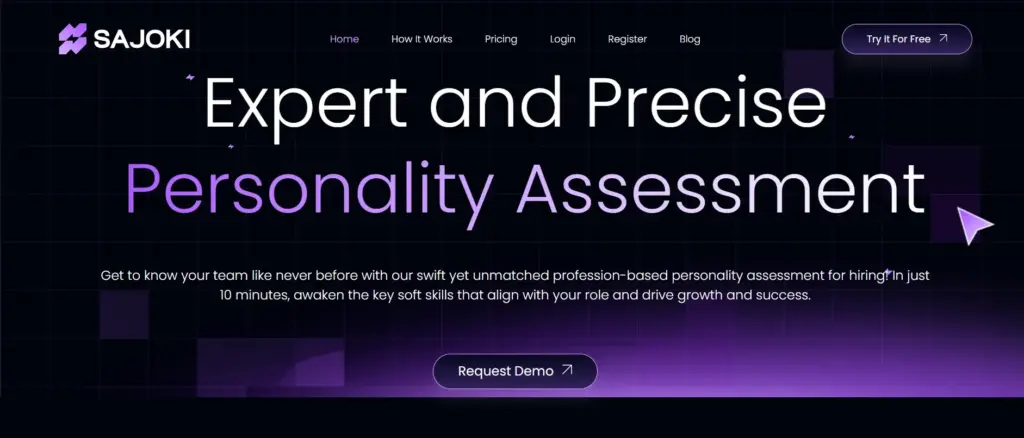Managers are the backbone of every organization. When a manager thrives in their role, the whole team runs without any disruption. However, technical skills alone won’t help them to be successful. The key to being a skilled manager is having the right soft skills alongside technical skills.
Now the question arises, what are soft skills for a manager?
A manager’s soft skills are interpersonal attributes developed within their core. These include communication, emotional intelligence, time management, and more. The purpose is to help managers flourish into the best version of themselves.
Stay with us as we reveal what are soft skills for a manager. We will additionally discuss the importance of these skills. More importantly, you will learn how to improve your managerial soft skills through this blog!
Why Do Managers Need Soft Skills?
Managers play a vital role in driving an organization’s success. Teams often fall apart when managers lack the right qualities and skills. Beyond technical skills, managerial soft skills are integral too.
With the right soft skills, a manager can surely boost team morale, keeping employees engaged while ensuring productivity. They help managers commit to their responsibilities throughout an employee lifecycle. Here is what soft skills can do for a manager.
- Maintain a strong connection with teams.
- Allows managers to support employee development that leads to overall workplace success.
- Mediate workplace conflicts and tensions.
- Create a disciplined structure in the workplace.
- Effective decision-making and time management.
- Help managers build confidence and leadership aptitudes.
Well, now you know what managerial soft skills can do. Let’s now break down what these soft skills are and how to improve them.
10 Essential Soft Skills For Managers
As workforces continue to grow, soft skills are becoming more and more prominent. There are a myriad of managerial soft skills a company requires based on their requirements. Despite the endless list of such skills, we have compiled a list of the ones that apply to most organizations.
Here are 9 best soft skills for managers.
1. Communication

Communication skills are invaluable in both personal and professional life. For managers, this one skill could impact their entire workflow. A clear communication style helps employees understand ideas and feedback properly. So, they can meet a manager’s expectations smoothly.
Also, understand this applies to verbal, nonverbal, and written communication. Proper communication in these three areas helps avoid misunderstandings and improve team morale.
How can managers improve communication?
Be concise and clear when you are communicating. Avoid overly complicated ways to explain tasks. Moreover, you need to be a good listener to communicate properly. So, be an active listener and try to understand where your employees are coming from.
Most importantly, keep asking questions for any sort of clarification. This goes a long way in avoiding miscommunication.
2. Emotional Intelligence

Having high emotional intelligence helps managers to stay tuned with themselves. It allows them to be self-aware so they can regulate their emotions in the workplace. Moreover, it will help them empathize with employees, leading to a stronger team.
Overall, managers with developed emotional intelligence can handle tricky situations easily. They usually stay calm even under difficult situations and make strenuous efforts.
How can managers improve emotional intelligence?
Try to practice self-awareness strategies. Reflect on your emotions and how you interact with others. Understand your employees and work on building a better relationship with them. Moreover, try not to make any rash decisions. Take your time to process a situation and respond accordingly.
3. Adaptability
Organizations are constantly growing and changing. With it, the employees must grow too. As managers, you have to be extremely flexible and adaptable. Whether there are newer innovations or any undesired situations, managers have to handle it all.
More importantly, managers have to aid employees with these changes. They have to rapidly adapt and get to work. So, a smooth workflow is dependent on them.
How can managers improve adaptability?
Keep an open mind and don’t dwell on the negatives. Encourage yourself and your employees with a growth mindset. Try to stay updated with new industry changes and organizational plans.
4. Critical thinking

A manager’s critical thinking allows them to analyze tasks. It helps them assess the various aspects such as workload, risk, and individual capabilities. So, they tackle complex situations with logical solutions and reasoning.
Managers with developed critical thinking can ensure strategic planning. They make effective decisions focused on long-term goals.
How can managers improve critical thinking?
The key is to build an analytical mind here. Try to focus on understanding the depth of a situation. You should analyze why or how it is happening. Moreover, gather fact-based data for making decisions.
You can also engage with coworkers regarding the matter. Challenge each other’s ideas and try to come up with unique solutions.
5. Problem-solving and conflict resolution
Coworking environments are bound to have conflicts here and there. This is where a manager’s problem-solving and conflict-resolution skills come in handy. They must focus on addressing challenges while staying on track.
As managers, you need to mitigate discourse and come up with solutions instantly. You must ensure all your employees feel heard and valued. So that your team can work harmoniously.
How can managers improve problem-solving and conflict-resolution skills?
Identify the root of the problem in particle scenarios. Then, maintaining an objective perspective, express the concerns. Allow your employees to express themselves too and try to reach a consensus.
Additionally, contact other departments for a clearer perspective. Turn to previous task records if needed. The goal is to find a pattern to solve specific problems.
6. Task prioritization and delegation

Managers are leaders, they get work done with everyone on the team. This is why they must understand which tasks to prioritize and delegate them accordingly. Once the workload is distributed evenly, teams can function efficiently.
Moreover, it prevents workplace fatigue for specific workers. It ensures an employee isn’t burdened with the majority of the task, preventing burnout. In the long run, organizations get to tackle significant goals within time.
How can managers improve task prioritization and problem-solving skills?
Start by focusing on deadlines and the results of specific tasks. This will help you understand which task is more important. For delegating tasks, you have to play by the employees’ strengths. Assign them based on their potential, expertise, and previous track records.
Provide your employees with clear instructions. Avoid micromanaging them, and let them work independently while setting up a deadline. You can also use management tools like Asana and Trello.
7. Time management

This is one of the most important soft skills for managers. Organizations have become fast-paced and managers must keep up with it.
It’s important they finish designated tasks effectively on time. Moreover, they have to keep other members in check, ensuring day-to-day tasks are handled properly.
Falling behind in one domain could ruin the entire workflow. This is why managers must prioritize their time-management skills. Staying on track allows teams to collaborate and maintain a structure.
How can managers improve time-management skills?
Managers need to be strategic and intentional. Plan ahead of time with realistic deadlines. This is to let your employees know about the requirements, ensuring they stay organized. Keep track of individual tasks and set reminders if needed.
More importantly, assign tasks evenly. Don’t assign more than one can handle. Refer back to our task delegation skill management strategies.
8. Coaching and Mentoring

Managers are mentors too! A good manager supports and guides employees as they navigate the challenges in a workplace. They help employees reach their full potential. This benefits both the organization and the employee’s career.
How can managers improve their coaching and mentoring skills?
Try to focus on individual needs instead of looking at it as a team-based challenge. Pay attention to what an employee lacks and how could they improve it. Discuss their career plans and provide them with feedback.
If needed, assign them simple additional tasks where they can apply the feedback.
9. Patience And Resilience
Lastly, we have patience and resilience as an important soft skill for a manager. A workforce is significantly dependent on managers. Managers have to focus on consistent growth to set up companies for success.
With this, they face regular challenges, from strict schedules and deadlines to uncooperative clients. So, they have to be patient enough to handle all sorts of difficult situations at any moment. Additionally, resilience is a must-have quality. So, that can bounce back from adversities and continue working.
How can managers improve their patience and resilience?
Remember, you can’t build these skills overnight. The key is to set realistic expectations for yourself. Start with an open mind and try to engage in stress management techniques. This could be meditation or exercise.
Additionally, try to maintain a positive attitude. Don’t let adversities get the best of you. Try to see challenges as a learning opportunity.
Additional Support To Improve Soft Skills Needed In Managers
For each of the skills, we have mentioned strategies for improvement. However, we understand that some might require additional support. We have added three options that can help managers improve their soft skills.
Soft Skill Assessment
Soft skill assessments will help identify a manager’s innate skills. So, they can understand their strengths and weaknesses and make necessary improvements.
There are many platforms that you could use. Take SAJOKI as an example.

It is basically a personality assessment tool that can provide managers with a clear understanding of their soft skills. It will enable them to identify strengths and areas that may require development.
Training Programs And Workshops
Identifying skills is important, but you must actively develop and refine them. We recommend joining training programs and workshops designed for managers. These will help you enhance your skills and demonstrate their real-world applications.
Conclusion
Are you still wondering what are soft skills for managers and why they even need them? Well, managers need loads of soft skills depending on their specific fields. However, the common ones often include communication, emotional intelligence, adaptability, critical thinking, and many more.
Each soft skill serves a unique purpose. While some skills focus on enhancing their interpersonal behavior with employees, others tend to help them with being great leaders. Together, they help managers become adept at their role. In the long run, a manager like this sets up companies for consistent success.
FAQ
Why are soft skills important in managerial roles?
Soft skills allow managers to go beyond their technical duties. So, they can connect with their employees. Moreover, soft skills also help them to be better coaches. So, they can lead the teams as a prime role model.
Can you really improve your soft skills over time?
Yes, you can. However, soft skills can’t be developed or improved in little time. You have to be patient and realistic with your goals.




